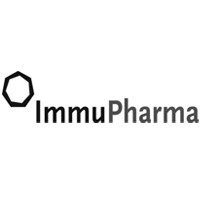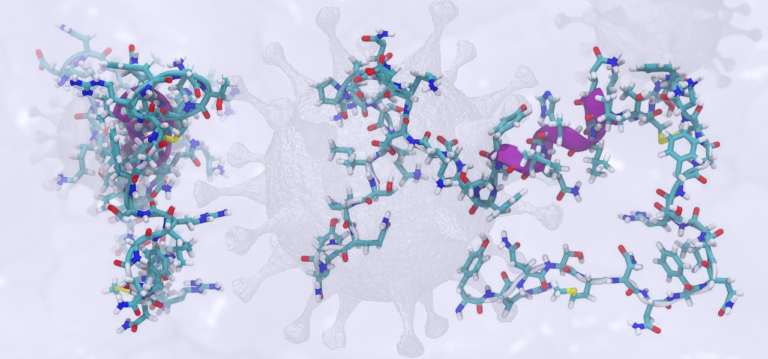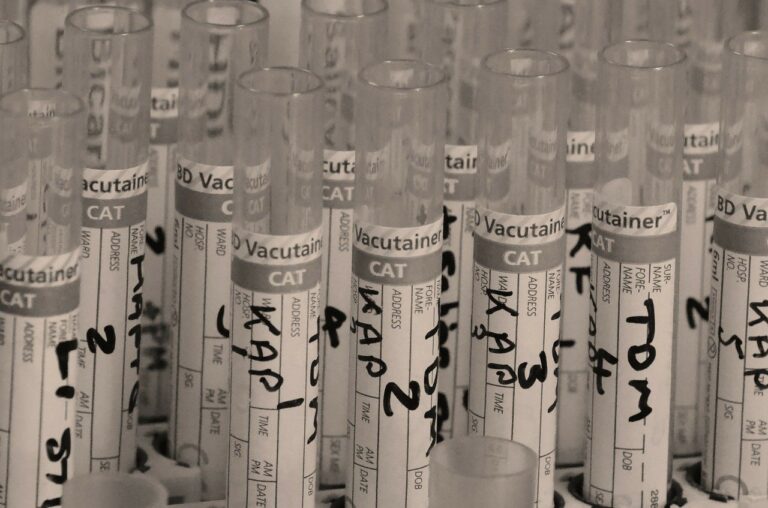ImmuPharma (LON:IMM) Non-Executive Chairman Tim McCarthy caught up with DirectorsTalk for an exclusive interview to discuss their licencing & development agreement with Avion, the Lanstead deal and the key investment points for investing in IMM.
Q1: In the last couple of days IMM has seen its share price rise on the announcement of a licencing and development agreement with US speciality pharmaceutical company Avion and this is to take ImmuPharma’s lead product, Lupuzor, into a Phase III trial. Tim, can you give the key highlights to the agreement?
A1: This was a licencing deal that we completed with Avion last week and we announced.
Avion are specialist pharmaceutical company based in the United States and the deal is exclusively for US rights to Lupuzor. The intention of the agreement is to allow both companies to co-develop Lupuzor through its second Phase III study which should allow the drug them to be put into registration and packaged for approval, not only in the United States but also the roll out across the rest of the world as well. So, quite a significant deal from that perspective in terms of the prospects for Lupuzor.
The financials of it are that the costs of the study going forward are being covered by Avion for up to $25 million. To put that in context, the first Phase III study that we reported last year cost us around $11 million. So that’s less than half of the amount of money which is being committed by Avion to this next Phase III study.
In addition, we will receive milestones of up to $70 million on certain registration and sales milestone achievements and double-digit royalties tiered up to 17% and 17% is pretty high royalties for any pharmaceutical drug for a company like ours to receive. To put that into context, even though Avion only have the rights to the US to sell the drug out, the potential market there could quite easily be £1 billion or $ billion, just in the US alone. So, you and your listeners can do the numbers yourselves but if we’re getting double-digit royalties up to 17% on $1 billion or $2 billion a year, that’s a lot of money coming in, potentially.
So, that’s why it’s such a significant announcement and deal and that’s why we saw a tremendous positive response to the deal announced last week.
Q2: Can you give some background to Avion and why you feel that they are an ideal partner for the company and Lupuzor?
A2: Avion are a specialist pharmaceutical company so they’re still a private company.
They’re not a GlaxoSmithKline or a big pharmaceutical company that a lot of your listeners would’ve heard of but for a drug like Lupuzor which is, in the first instance, developing the drug in the area of Lupus, what we need more than anything is a company that knows this area.
Avion know this area very very well so the principal people this drug will be sold to, or we have to convince to prescribe to their patients are rheumatologists and Avion already work in the rheumatology community in the United States. So, they’re perfect from that perspective in terms of marketing the drug and getting the best profile for it.
In terms of the later stage development, they have a lot of expertise in late stage development and liaison with FDA particularly which is the regulator in the United States. So, again, that’s exactly what this drug needs in terms of its next step.
What we shouldn’t forget, outside of Lupus, there is the opportunity to develop Lupuzor for other autoimmune diseases and Avion also have the rights to develop the drug in the United States for that and obviously sell of which we would get a financial return as well.
So, every way you look at it, they are an ideal partner for ourselves, for the US, absolutely.
Q3: How important was this validation by a third party industry player in positioning Lupuzor as a potential first line treatment for Lupus?
A3: I think it’s important in a number of ways. When you have some relatively small companies in the pharma industry, as we are, we don’t have the infrastructure to be able to take the drugs that we develop, in this case Lupuzor, we don’t have the infrastructure to market them and sell them and get the most out of them. So, generally speaking, the way to market is to partner with somebody else so not only does that allow you that route to market but it also gives the external validation, technical and scientific validation that everyone is looking for.
You’ll remember, and your listeners will remember, that we have run one Phase III clinical study on Lupuzor which we reported last year and unfortunately, we didn’t report the best results in the first instance because we couldn’t meet the primary end points that the trial was set at. Subsequently, about a month later, we did publish a follow-on set of results which demonstrated that the drug worked extremely well in a certain population of patients in Europe.
That’s essentially what Avion have picked up on and to put it in context, the deal took us the best part of a year to negotiate and complete and most of that time was taken up with Avion doing their very detailed due diligence. So, that’s due diligence on a technical and scientific level, looking at all the data that we’ve produced as a company over the years and all different stages of clinical development. They also did very very extensive competitive analysis i.e. what other drugs are in development in this particular area, what is the market potential and what is the demand both from patients and the specialists like rheumatologists.
For Avion to commit the level of financial and human resource that they are to take Lupuzor forward is very very significant indeed. So, the validation to, for example, the investment market and our shareholders in particular is important that they can see that somebody else who is specialised in the area, other than ourselves, are getting behind Lupuzor and believe in it.
Q4: You mentioned earlier that this is exclusively for the US, will you now be seeking partners for other territories, I guess in particular Europe?
A4: We definitely will and to put that into context, one of the other big advantages of the deal with Avion is we will co-develop this drug with Avion, although clearly, they’re picking up the financial cost of it. We are co-developing it, clearly, in the first instance to get approval in the United States with Avion but the data we’ll produce from this second Phase III study and the total data package that we’ll put together, we can also use as a registration package for other territories in the world; Europe is an obvious one but the Far East, North and South America.
So, the benefits of this deal with Avion extend a lot further than just the US and we retain all rights for Lupuzor outside of the US so we obviously need to exploit that and, again, the route market for us is more likely going to be with a number of other partnerships throughout the world.
I think what the market can expect is more positive news flow as we start immediately, we’re not going to hang around with this, we’re already opening up discussions with other potential partners for other territories in the world. So, looking at positive news flow coming up and how we’re going to roll out Lupuzor across the world and that’s definitely part of our plans.
Q5: What will be the next key milestones in IMM’s development, particularly within Lupuzor?
A5: Obviously, Lupuzor, as I’ve explained we’ve got a clear route to market now in the US so certainly your listeners and the market in general can expect us to be very busy on the partnering side as we roll Lupuzor out.
What we shouldn’t forget is also we have other parts of the portfolio which we fully intend to bring forward over the next period so that’s cancer and metabolic disease and those are areas that we’re going to be concentrating on in the 2020. So, I think your listeners can look out for exciting developments on that side as well.
Q6: Now, touching on the Lanstead Agreement completed in June this year, can you remind us of what the agreement was and particularly how it’s affected by now a much stronger share price?
A6: Lanstead was a deal we put in place in the summer for an extra piece of funding for the company, Lanstead are a company that we know well, we’ve done a previous deal with them which was extremely beneficial both for Lanstead and to the company.
It’s a slightly unusual financing deal that what some of your listeners will be familiar with. Essentially, Lanstead subscribe to shares in the summer, which we issued the shares, so they’re a major shareholder, I think currently they’re around 13% shareholder in the company so quite a significant shareholder.
The way that it works is through something called a fairing agreement so the better the share price responds in terms of positive movement upwards, the more money we received under the share agreement. So, there’s no further dilution for other shareholders, no other shares are issued, Lanstead have all the shares get under this deal but the more positive news flow we put out which in turn leads to a positive uplift in share price, we actually get more money in the bank.
So, this development this week and the massive share price movement that we receive dis extremely beneficial to our balance sheet, cash balances, and I expect that as we move forward into next year and we get more positive news flow out, the share price will continue to strengthen.
I think it’s worth saying that we wouldn’t have entered into this deal with Lanstead in the summer unless we were confident that we were going to be producing some news flow over the period of the agreement which is essentially a 2-year agreement.
So, I hope that’s sending a positive message out to the marketplace that we are very firmly in a situation now where we’re expecting some news flow coming up over the next period.
Q7: So, in summary, what are the key investment points to why ImmuPharma is now a stock that potential investors should be considering adding to their portfolio?
A7: I think if anybody is looking for any company to invest in, they’re looking for a share price which is going to move forward, they’re looking for a company which is going to put out positive news and be successful.
Even though we had something like a 300% share price increase at one point last week, we’re still a relatively low share price and low valuation, definitely if you compare that to, even in the last 18 months/2 years, we were at a share price of £1.90 at one point. Even that, I don’t think reflects the full true potential of our portfolio and in particular Lupuzor which is at such a late stage.
I mentioned some of the potential revenue numbers involved with the US deal, you try and translate that into the revenues coming into the company and we could be talking literally hundreds of millions of dollars of royalties a year. So, it doesn’t take me to explain to your listeners how that translates into valuation and share price.
In a company like ours, it is all about positive news flow and that then in turn gets translated into the appreciation in share price and appreciation in valuation. So, if this is a case of somebody looking for an opportunity to get in at a good price, in anticipation of something coming up in the future, then I think IMM definitely fits that box.











































